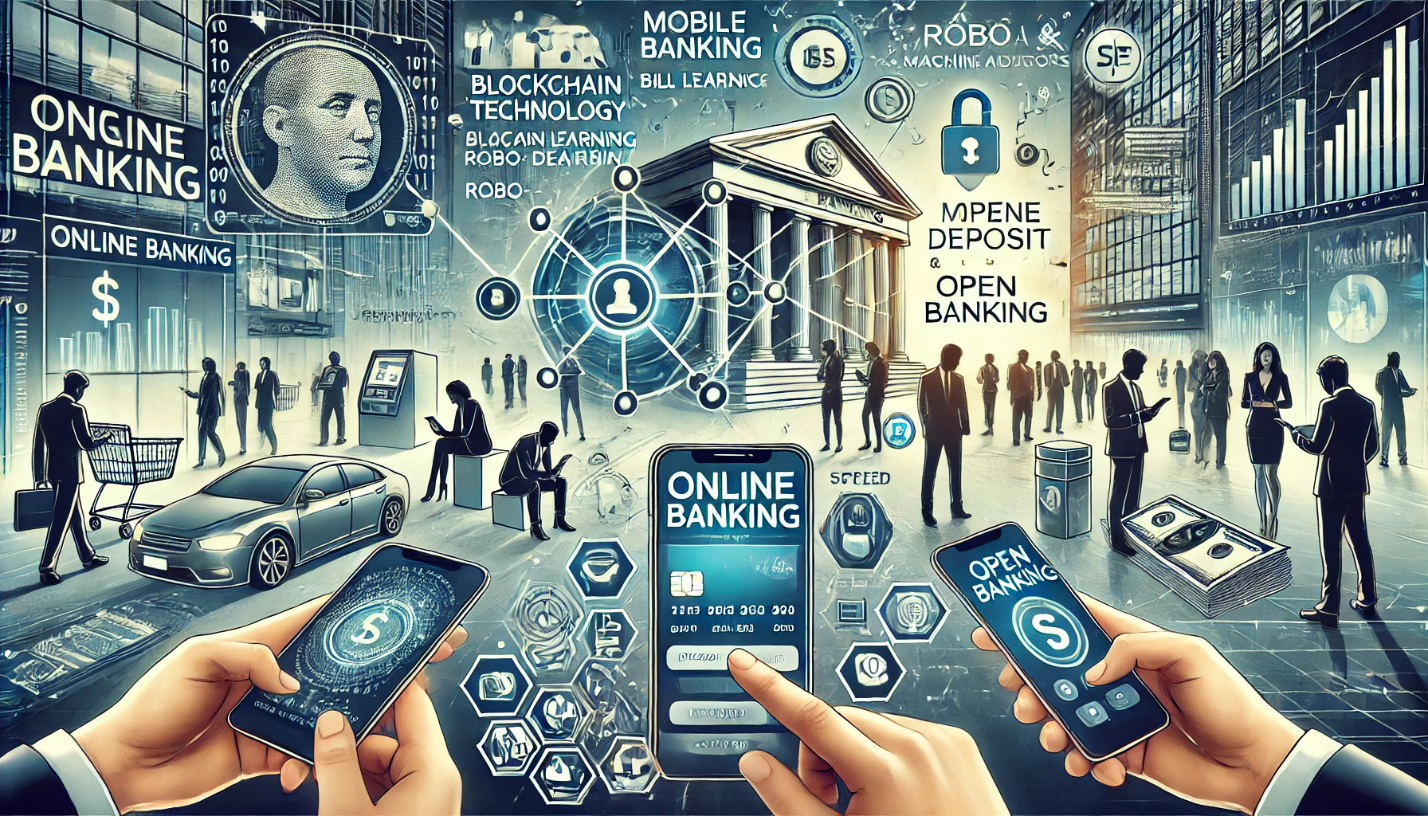- All Plans
- Yahoo Press Release
- Bloomberg Press Release + Yahoo Finance
- Business Insider Press Release
- Benzinga Press Release
- Digital Journal Press Release
- US Times Now Press Release
- AP News Press Release
- Yahoo Finance Press Release
- Street Insider Press Release
- MSN News Press Release
- USA Today Press Release
The Digital Banking Revolution: Fintech Innovations Transforming Financial Services in the U.S

How is digital banking and FinTech innovation making any difference in online banking services across the United States, providing consumers with convenience and security never before experienced?
It has been a decade of tectonic shift in the financial landscape of the United States, driven fundamentally by rapid technological changes. The rise of digital banking has changed the way Americans do their finances today: convenient, efficient, and secure beyond comparison. It has been a revolution of FinTech innovations changing the traditional paradigms of banking to usher in a new breed of online banking services.

The Digital Banking Revolution: Fintech Innovations Transforming Financial Services in the U.S
Understanding Digital Banking
Digital banking is a wide range of banking services basically performed through digital platforms. Contrary to traditional banking, which is highly dependent on physical branches and person-to-person contact, digital banking capitalizes on the benefits provided by technology to offer services anytime and from anywhere. This has been possible due to the fast rate at which people embrace both smartphones and internet usage, hence expanding the entire reaches of banking to many people.
Online Banking Services: The Backbone of Digital Banking
The hub of this overhaul is the online banking services. In simple terms, these services enable the customer to perform an extended array of financial transactions from the comfort of their homes. The most prominent services in this regard include:
- Account Management: This allows customers to view account balances and transaction history with the ability to manage multiple accounts on a single platform.
- Funds Transfer: It has never been easier to transfer money within accounts or to other people with instant and scheduled transfer options.
- Bill Pay: Saves time as well as reducing the paper-based process associated with paper checks and stamps.
- Mobile Deposit: Consumers can deposit checks from their Smartphone cameras without having to go to the bank.
- 24/7 Customer Support: Many banks have gone to round-the-clock customer support using chatbots and virtual assistants
.You May Also Like:
ITFIRE Launches Revolutionary Digital Banking and Trading Platform, Opens Presale for ITF Tokens
Westfort Bank Announces Revolutionary Shift to Fully Digital Banking Services
How Fintech Innovations Will Bend
Fintech refers to the integration of technology into the products offered by financial services companies. These innovations have been the driving forces behind this so-called digital banking revolution, introducing groundbreaking change in how financial services are delivered. This includes the following:
Blockchain Technology
These days, banks are turning to blockchain technology that underpins cryptocurrencies to provide a decentralized, immutable, and highly secure ledger, thereby reducing fraud risks in many transactions.
Artificial Intelligence and Machine Learning
AI and machine learning algorithms analyze customer data to deliver personalized banking. The technologies detect fraudulent activities, offer tailored financial advice, and enhance customer service via intelligent chatbots.
Mobile Banking Apps
Leveraging banking to great convenience, mobile banking applications have managed to allow in-app management of finances, track spending, and even facilitate loan applications directly from their smartphones. This is the user-friendly interface and robust security features that explain their popularity in digital banking.
Robo-Advisors
Robo-advisors offer investment advice and portfolio management through algorithms. Essentially, they reduce the cost of a financial advisor, therefore, democratizing investment services to the mass market.
Open Banking
Open banking enables third-party developers to build applications and services around financial institutions. It brings transparency and hence promotes competition for better services and products for consumers.
Impact on Traditional Banking
The growth of digital banking has made it very difficult for traditional banks to operate, and they now have to upscale their innovations in order to remain relevant. As such, many traditional banks have jumped into the bandwagon of fintech partnering in order to become more competitive. Such banks will be able to offer enhanced digital services to their customers by integrating the fintech solutions, hence bridging the gap between traditional and digital banking.
You May Also Like:
Sends company supports and joins eco-friendly banking initiative
Benefits to Consumers
The digital banking revolution has a number of benefits to the consumers:
- Convenience:customers conduct banking transactions anywhere in the world at any time with no visit to the branch required.
- Speed:transactions are quicker with real-time updates.
- Cost-Effective:lower overhead costs of banks may translate to fewer fees for customers.
- Improved Safety:more sophisticated encryption and security protocols to safeguard data and transactions of customers.
- Accessibility:digital banking services increase financial inclusions even to people in remote areas.
Challenges and Future Prospects
Digital banking is, at its very core, plagued with a myriad of issues. Cybersecurity will become a major concern since the banks will continue to seek new ways of shielding themselves from any threats. Compliance with the regulatory requirements and the stipulated safeguards on consumer privacy are other everlasting concerns for the banks.
Looking ahead, the future of digital banking in the United States is bright. Continued evolution in fintech innovations will likely bring in more sophisticated and safe banking solutions. Quantum computing, as well as advanced biometric systems, could be the next game changers to revolutionize an already changed industry into one of even greater security and efficiency.
The US fintech-driven digital banking revolution changes the face of financial services. Digital banking redefined how Americans interact with their financial institutions—prompting ease, speed, and security without parallel. In times to come, when technology is getting more sophisticated every moment, the prospects for banking can only be much more dynamic and inclusive, frictionless, and enriched in experience for all.
